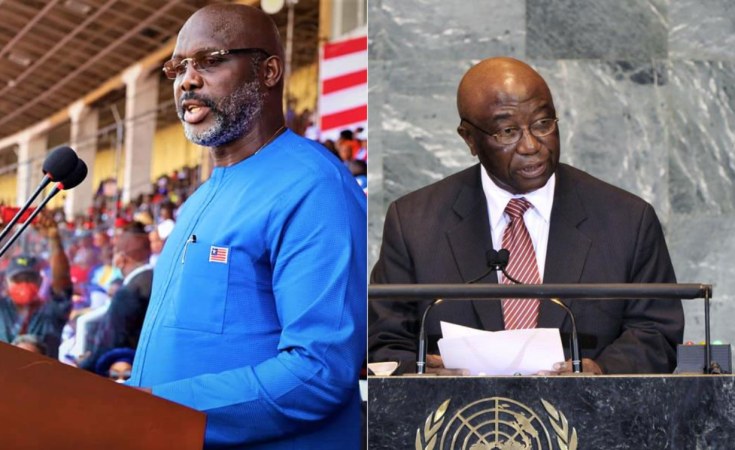.... EU Election Observation Mission says President used state resources to gain unfair political advantage
In the aftermath of the October 10 polls, President George Weah is facing allegations of "disproportionate" use of "state resources", which distorted the political playing field.
According to a report by the EU Election Observation Mission to Liberia, the president's campaign team utilized a lot of state resources to establish a more dominant presence across the 15 political subdivisions of the country.
The report noted that "state resources" not only provided the president's campaign with a substantial advantage but also contributed to a campaign environment characterized by significant disparities.
"The disproportionate spending on behalf of the ruling party, the Coalition for Democratic Change (CDC), distorted the fairness of the campaign," said Andreas Schieder, the head of the EU Election Mission. "EU observation showed an obvious disparity in terms of resources available to CDC for the presidential campaign in all 15 counties in terms of billboards, posters, vehicles, and t-shirts, etc.
"The widespread use of state resources in the form of official vehicles and buildings was widely observed by the EU EOM observers," he added. "Many appointed officials at county or electoral district levels were publicly campaigning in favor of the ruling party."
Schieder noted that while the mission's observation of the campaign period showed a high level of "monetization and bartering," it also found that in "some counties, civil servants were pressured to attend the ruling party's campaign events."
The report, which also covers issues relating to electoral framework and administration, noted that while the country's campaign finance regulations are overall in line with international standards, the lack of enforcement failed to ensure transparency and a level playing field. It also added that the "lack of capacity and resources constrained" the National Elections Commission (NEC), creating a sense of impunity and that the respect for campaign finance regulations by the contestants is limited or poor.
The European Union is among the key international partners of the Liberian electoral body and has been present here since August 27, following an invitation from the Liberian authorities. As part of the mission, the EU deployed 103 observers from its 27 Member States, including Canada and Norway, to assess the electoral process against international obligations. A delegation of the European Parliament, headed by Leopoldo López Gil, MEP, also joined the mission, which on election day visited 417 polling stations in 63 of the 73 electoral districts and in 14 out of all 15 counties of Liberia to observe voting and counting.
Schieder, a member of the EU, was chosen to lead the team, which included experts on elections, analysts, political, legal, campaign finance, media, social media, and data experts.
The mission, however, commended Liberians for turning out to vote on October 10, saying that Liberian voters demonstrated commitment to the democratic process "by participating in great numbers."
"The technical preparations and running of the election day were well administered," Schieder added. While the campaign was largely peaceful and vibrant, and the press was free to cover all sides of the campaign, the use of government platforms and state resources constituted an advantage to the incumbency.
However, the Schieder mission noted high turnout, cumbersome procedures, and their implementation slowed the conduct of polls, which "was calm and well conducted by the National Elections Commission and their staff nationwide".
Leopoldo Lopez Gil, Head of Delegation of Members of the European Parliament, added: "As democratically elected politicians, my Parliamentarian colleagues and I urge all political leaders to accept the election's outcome and address peacefully any disputes via the courts."
"It is also important to note that the results tabulation is still underway," said the Chief Observer, adding that "the EU EOM will remain in the field to observe the process, including the handling of complaints and appeals".
Meanwhile, the mission has noted that while Liberia's legal framework provides a reasonable basis for the conduct of democratic elections, it does not fully guarantee voters' right to an effective legal remedy. Campaign freedoms were mostly respected in terms of freedom of assembly, speech, opinion, and media, despite some minor incidents. The EU Observer Mission has added that it will present a Final Report with recommendations to the public at a later stage.
"Based on its methodology of long-term, independent, and impartial observation, bound by a strict code of conduct, the first members of the EU EOM arrived in Liberia on 27 August. The mission strictly adheres to its principle of non-interference," Schieder said.


